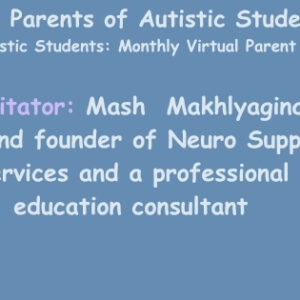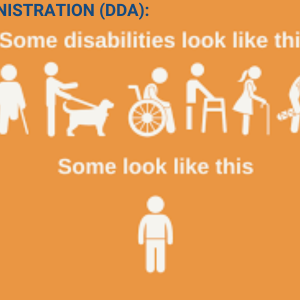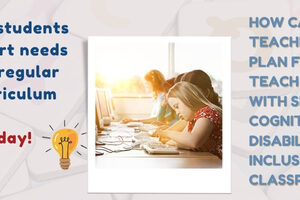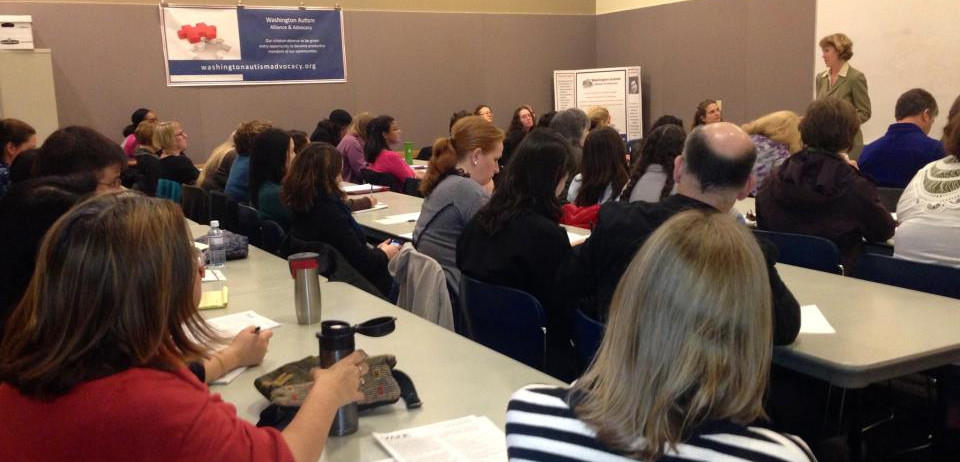
Blueprints for Special Education Online Workshop
Join our state’s most prominent special education attorneys for an in-depth explanation of how to use the building blocks of the state and federal laws to develop appropriate services for your learner.
Meet our presenters:

Katherine George has been in private practice for more than 15 years, representing appellants and amicus parties in dozens of precedent-setting cases. She has extensive experience helping parents improve special education for children with disabilities. She was instrumental in the passage of the law regulating restraint and isolation of students in public schools. She represented children’s advocates in the landmark education funding case, McCleary v. State of WA, advocating for full funding of special education.
She also practices media/public records law.

Kerri W. Feeney is one of the very few attorneys practicing in Eastern Washington State dedicated to the representation of parents/students in special education disputes.
She actively supports numerous professional organizations, including the American Bar Association, Washington State Bar Association, WAAA, American Diabetes Attorney Network, and the Council of Parent and Attorney Advocates.
In addition to her legal education, Ms. Feeney holds a Master of Education degree from Washington State University and completed training through the Program on Negotiation/ Mediation at Harvard Law School in Cambridge, Massachusetts, and is fluent in Spanish.
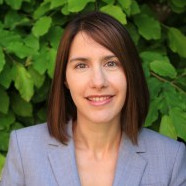
Nicholle Mineiro is passionate about fighting for the rights of children and youth with disabilities.
She has personal experience herself as a parent navigating the complex world of special education. She regularly litigates special education and discrimination cases. She handles special education due process hearings, federal appeals, and state and federal court litigation.
Nicholle has practiced law for fourteen years in Washington and California. She earned her J.D. from Loyola Law School, Los Angeles, a Masters in Education from Claremont Graduate University, as well as a B.A from UCLA in 1998.

Scot Johnston
Scot Johnston is a cum laude graduate of Harvard Law School and a member of the Attorneys for Eduction Rights (AFER). He’s a past partner at Dorsey & Whitney, and Bogle & Gates of Seattle. He’s been practicing special education law with his partner, Katherine George for the past 4 years.
Schedule – Please note we leave a 15 minute buffer in the morning schedule in case any of the sessions go over by a few minutes. This will ensure the overall presentation will end on time:
9:00 – 9:15 – Meet and greet, introduction to WAA advocates, introduction to self-help resources
9:15-10:15 Group 1 – Initial Assessments, reevaluations, IEEs (60 min)
- How to formally request evaluations
- How to tie evaluations to developing effective and measurable goals
- What to do if the school did a cursory evaluation
- Evaluations for non-speaking or non-verbal students or students with challenging & disruptive behaviors
10:15- 10:30 Mid Morning Break
10:30 – 11:30 Group 2 – Writing effective IEP Goals & Tracking Progress
- An ounce of prevention that most parents are capable of advocating for that can make a big difference
- Tips for what to look for in an IEP goal and what to demand not be part of an IEP goal.
- How much data can I ask for?
- How often can progress be reported?
- Trends in how districts are reporting data.
- How to document the IEP team meeting
11:30 – 12:00 – Lunch break
12:00- 1:00 Group 3 – Full range of instructional arrangements, supplementary aids & services (60 min)
- How do I know if my student is receiving effective education?
- How do I negotiate for research based and evidence based methodology
- What if the school district’s expectation of how much progress my learner can make in a year is REALLY low?
- How can I negotiate for access to general ed. for my learner with high support needs?
- How can I negotiate for access to the gifted program if my learner has social & organization needs?
- How to secure services for students who don’t present with exceptional needs (needs fall through the cracks)?
- Transition Plans & Vocational Training
- What does 18-21 look like for college bound students with disabilities – College prep, etc.
1:00 – 1:15 – Afternoon Break
1:15 – 2:15 Group 4 – Resolving differences: Due Process; Citizen Complaints (60 min)
- Placement disagreements: How to negotiate for appropriate supports in the least restrictive environment
- What if there are no good options in the district: How & when do I negotiate for private placement
- Resolving differences: “I can’t afford an attorney, my child’s unable to benefit from digital learning, and school’s refusing in person services!” Documentation along the way in case you need to file a complaint
- How to file a citizen’s complaint.
Adjourn 2:30 pm
Interpretation Services
If you need an interpreter, you must register 30 days prior to the workshop. Each breakout session will have a staff member teamed up with our presenters to support technical aspects.
Contact Phone: 425-894-7231
Email: [email protected]


